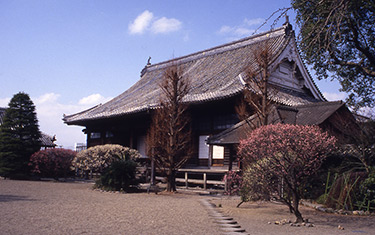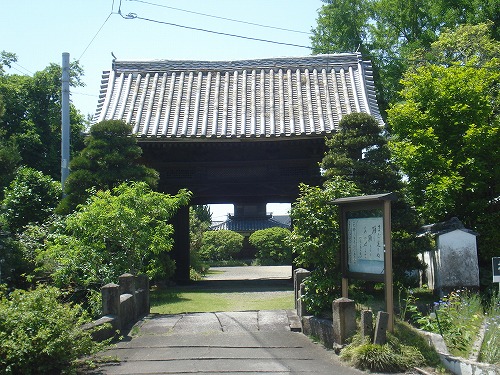Fukugonji Temple
Fukugonji is the family temple of the Tachibana Clan which ruled the Yanagawa Domain. When Tachibana Muneshige assumed residence in Yanagawa Castle in 1587 upon the partitioning of Kyushu by Toyotomi Hideyoshi, Baigakuji Temple, a Soto Zen temple and the family temple of Bekki Dosetsu, was relocated to a site below the castle. In 1600, after Muneshige was stripped of his title and holdings as a result of the Battle of Sekigahara, Tanaka Yoshimasa took over the castle. During his tenure there, the temple had to be dismantled, but Muneshige rebuilt it after returning to Yanagawa in 1620. In 1669, Tachibana Akitora, the third lord of the Yanagawa Domain, switched the affiliation of the temple to the Sect of the Rinzai Zen School and renamed it Fukugonji. Tetsumon, a disciple of Mokuan, the second generation head of the Obaku Sect, was invited for the dedication of the temple. The temple features the Yamamon Gate to the east, the Main Hall to the north, the Ten'noden Hall to the south, and the bell tower and Kaisando Hall to the west. The current Main Hall was rebuilt in 1813 on the site of the former Yakushido Hall. Rebuilt in 1857 by the abbot Dokosho Zenji, the Ten'noden Hall is an invaluable property, the likes of which are now rare in Japan. Behind the Main Hall is the graveyard for the feudal lords of the Yanagawa Domain, and there is a samurai graveyard on the western end of the temple grounds. There is also a monument dedicated to the retainers who died in war dating back to Bekki Dosetsu, and a memorial service for these fallen samurai is held every year. The temple is also home to the graves of Akutagawa Prize-winning novelist Ken Hase, Naoki Prize-winning poet Kazuo Dan and haiku poet Ryokuhei Kimura.


